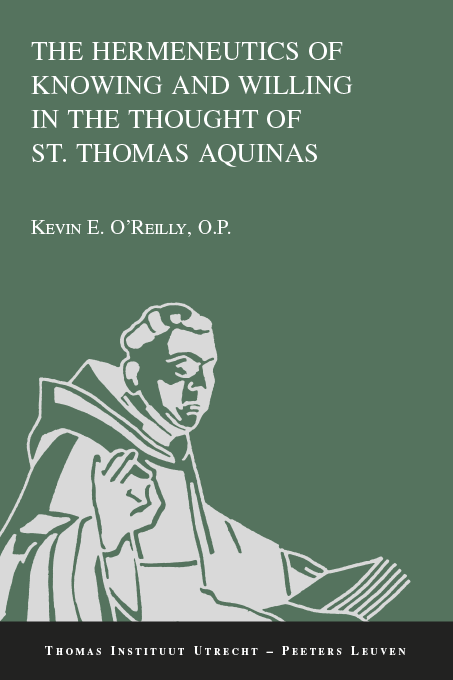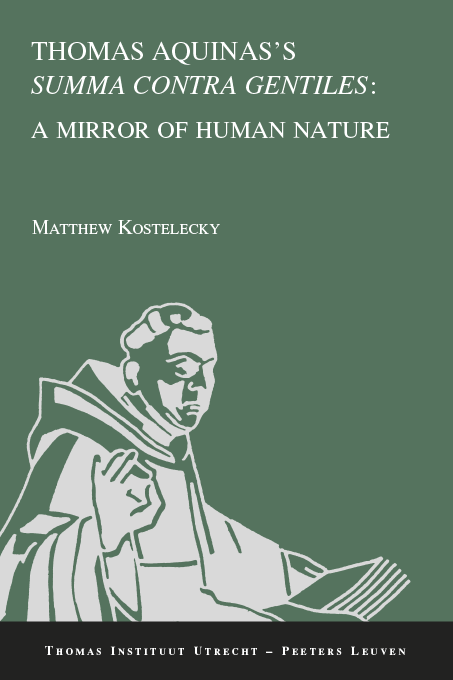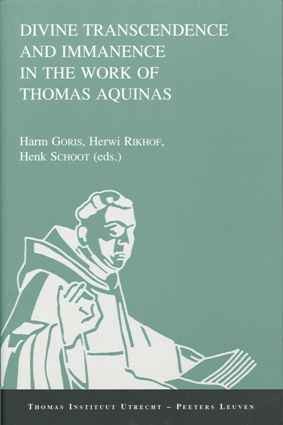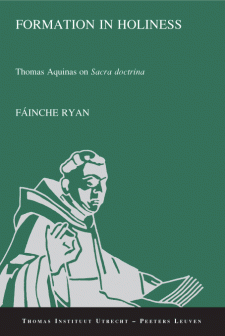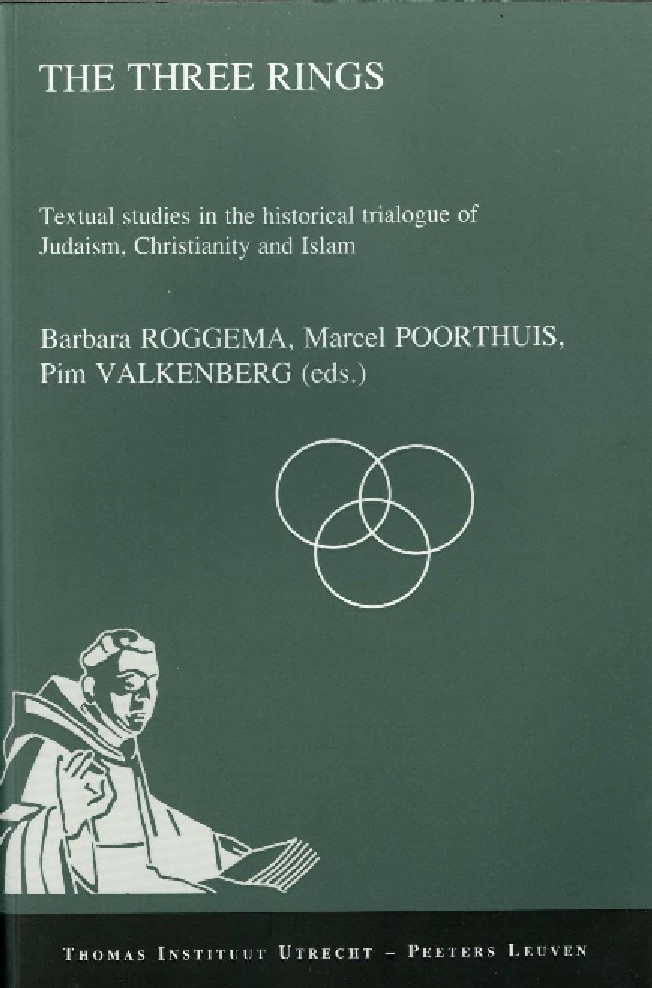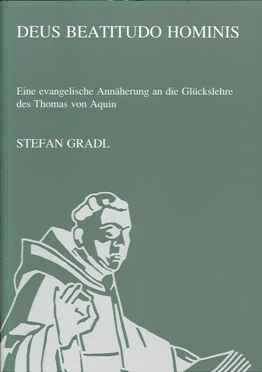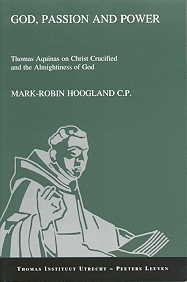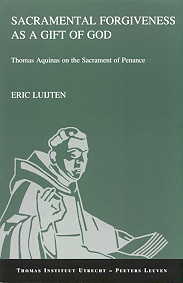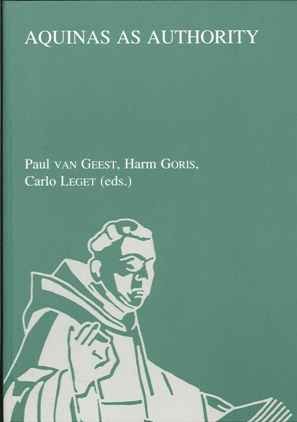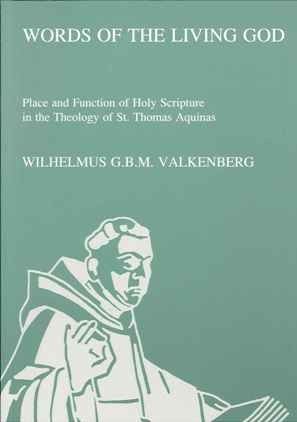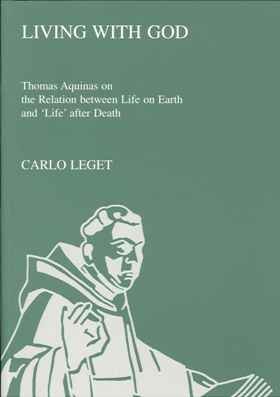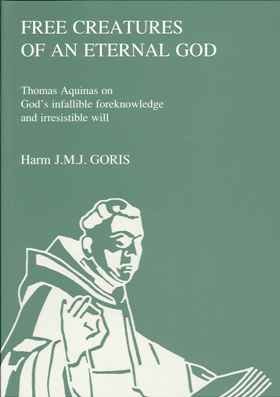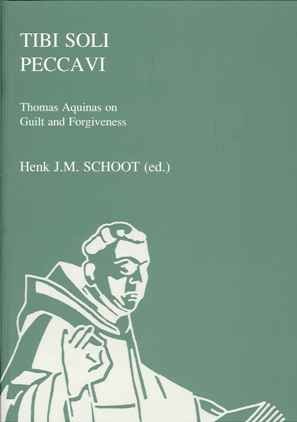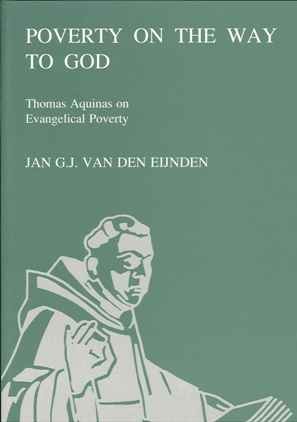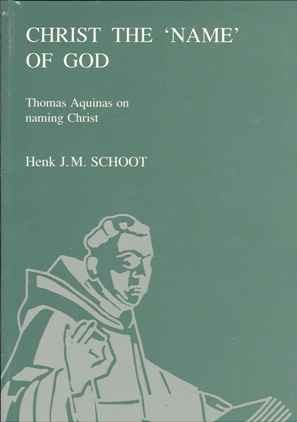Home > Publications > Publication Series
Publications of the Thomas Instituut te Utrecht
The Enduring Significance of Thomas Aquinas
Essays in Honor of Henk Schoot and Rudi te Velde
Leuven, Paris, Bristol CT: Peeters, 2023
ISBN 9789042951105, € 39,00.
This volume contains fourteen papers that show the ongoing significance of the thought of Thomas Aquinas for theology and philosophy today. The papers are offered to Henk Schoot, professor for the Theology of Thomas Aquinas, and to Rudi te Velde, professor for the Philosophy of Thomas Aquinas upon their retirement. Both are members of the Thomas Institute of the School of Catholic Theology of Tilburg University (The Netherlands). The authors are (former) colleagues and fellow Thomist scholars from around the world who want to honor and thank Henk Schoot and Rudi te Velde for their work and friendship.
Vol. XX
Stefan Mangnus
The Divinity of the Word
Thomas Aquinas Dividing and Reading the Gospel of John
Leuven, Paris, Bristol CT: Peeters, 2022
ISBN: 9789042948211 € 30
In the prologue to his commentary on the Fourth Gospel, St. Thomas Aquinas (1224/5-1274) states that while the other Gospels predominantly discuss the humanity of Christ, St. John the Evangelist focuses on the divinity of Christ. In the commentary itself, Thomas uses the divisio textus to structure the text, a technique that his contemporaries like St. Albert the Great and St. Bonaventure used as well.
This study shows the divisio textus to be both a didactical tool that helps students get a grip on the Gospel text and a hermeneutical tool that gives essential insight into Thomas’s interpretation of the Gospel. It shows that for Thomas, John 1 is the Gospel in a nutshell and that in his interpretation, what the Evangelist has to say about the divinity of the Word in Jn 1 is developed in the rest of the Gospel. The divisio textus is shown to be an indispensable tool for understanding Thomas’s commentary on John, and Thomas’s trinitarian interpretation of the Fourth Gospel is demonstrated to be based on a profound theology of the Word of God.
Vol. XIX
Henk Schoot, Jacco Verburgt, Jörgen Vijgen (eds)
Initiation and Mystagogy in Thomas Aquinas. Scriptural, Systematic, Sacramental and Moral, and Pastoral Perspectives
Leuven, Paris, Bristol CT: Peeters, 2019
ISBN: 9789042941274 € 48
On what grounds could Aquinas’s interpretation of Isaiah be called mystagogical? How does he account for growth in faith? What is Aquinas’s conception of teaching? What does he say on the mystagogy of the Holy Spirit? Can Aquinas help us understand the concept of sensus fidei? What is the relationship between Aquinas and Pseudo-Dionysius concerning mystical theology? How about baptism? How about moral transformation? What can we say about the preaching of Aquinas? These and other questions were discussed at the sixth international conference of the Thomas Instituut te Utrecht (Tilburg University), held in December 2018 in Utrecht. The conference was devoted to the theme of Initiation and Mystagogy in Thomas Aquinas, a surprising and challenging theme. A number of studies presented at this conference are gathered together here in this volume. The essays address a wide array of subjects and attest to a variety of perspectives, because of which the volume is divided into four parts: (I) Scriptural, (II) Systematic, (III) Sacramental and Moral, and (IV) Pastoral perspectives.
Vol. XVIII
Anton ten Klooster
Thomas Aquinas on the Beatitudes. Reading Matthew, Disputing Grace and Virtue, Preaching Happiness.
Leuven, Paris, Bristol CT: Peeters, 2018
ISBN 978-90-429-3643-0, € 40,00.
What is happiness and how do we attain it? Saint Thomas Aquinas (ca. 1226-1274) devoted much time to these questions. In studying them he always returned to the beatitudes as they are found in Matthew 5:1-10. They function as the framework for his theology of human happiness. This study presents that theology as it comes to the fore in Aquinas’ performance of his three tasks as a magister at the Parisian university: to read Scripture, to dispute theological topics, and to preach.
This study shows that Aquinas believes that the beatitudes describe a number of virtuous actions, the exercise of which is made possible by grace, specified in the gifts of the Holy Spirit. To all those observing the new law constituted by the beatitudes, a reward is promised in the form of eternal happiness. Any happiness that can be had in this life is at best an inchoate form of the reward of eternal happiness, which is described in the second part of each individual beatitude.
Vol. XVII
Harm Goris and Henk Schoot (eds.)
The Virtuous Life. Thomas Aquinas on the Theological Nature of Moral Virtues
Leuven-Paris-Bristol, CT: Peeters 2017, € 62,00
ISBN 978-90-429-3471-9
This book is devoted to the so-called moral virtues, especially those moral virtues of which Christian tradition upholds that they are given by God to the faithful. For instance patience, humility and justice. There are not only different interpretations of these infused moral virtues, but it also is not unambiguous in the theology of Aquinas how these virtues are related to the virtues human beings acquire on their own accord. What is the relationship with Scripture, how do these virtues colour the imitation of Christ, and what do these virtues tell about the moral life of non-Christians?
A collection of studies presented at the fifth conference of the Thomas Instituut te Utrecht, December 16-19, 2015.
With contributions of John O’Callaghan, David Decosimo, Richard J. Dougherty, Dominic Farrell LC, Harm Goris, Angela Knobel, Timothy J. López, William C. Mattison III, Thomas M. Osborne, jr., Andrew Pinsent, Paul M. Rogers, Henk J.M. Schoot, Michael Sherwin o.p., Randall B. Smith and Rudi te Velde.
Vol. XVI
Harm Goris, Lambert Hendriks, Henk Schoot (eds.)
Faith, Hope and Love. Thomas Aquinas on Living by the Theological Virtues
Leuven, Paris, Bristol CT: Peeters 2015, � 54,00
ISBN 978-90-429-3221-0
During the last two decades virtue ethics has become the focal point of renewed ethical and theological interest. To lead a good life, it proves useful to watch those who have mastered the art of living. The conviction that living is an art is at the heart of virtue ethics. Living a good life requires exercise, and is a question of acquiring a virtuous character rather than of complying with external ethical and legal rules. This renaissance partly builds on Thomas Aquinas. He in turn recovered Aristotelian, Ciceronian and Augustinian thought on virtue ethics. The interpretation and development of virtues and vices form the core of his authorship, as the secunda pars of his Summa theologiae readily displays. And yet, the most important virtues for him are not the moral ones, such as Justice, Temperance, Prudence and Fortitude, but those virtues that are both infused by and aimed at God: Faith, Hope and Love. These are virtues that the philosophers of antiquity were not aware of. To account for them, Aquinas had to adapt the classical understanding of virtues. For Aquinas, the moral virtues come to full fruition only when they are embedded in a life before God, a life lived exercising the God given theological virtues. By ignoring Faith, Hope and Love, the present discussion of virtue ethics not only ignores those virtues that were for Aquinas of utmost importance, but also fails to arrive at a complete understanding of his view of the moral virtues.
Papers originally presented at the fourth international conference of the Thomas Instituut, Utrecht, December 2013. Contributions from Eleonore Stump, Rudi te Velde, Paul van Tongeren, Dominic Farrell LC, Francisco J. Romero Carrasquillo, Timothy Lopez, Bruno Niederbacher SJ, Herwi Rikhof, Daniel de Haan, Lambert Hendriks, Michael Sherwin O.P., Paul Waddell, John O’Callaghan, Randall B. Smith, Jörgen Vijgen and Richard Conrad O.P.
Vol. XV
Kevin E. O’Reilly O.P.
The Hermeneutics of Knowing and Willing in the Thought of St. Thomas Aquinas
Leuven-Walpole/MA: Peeters 2013, � 48,00
ISBN 978-90-429-3033-9
This study elicits a concern to show forth those elements in the theology of Saint Thomas Aquinas that can meaningfully engage with those trends in contemporary hermeneutical philosophy and theology that highlight the conditioned nature of human understanding. The main point of reference in this regard is the hermeneutical philosophy of Hans-Georg Gadamer.
At the heart of this hermeneutical enterprise is Thomas�s construal of the relationship between intellect and will, a relationship that can be described as one of dynamic reciprocity. A dynamic interaction between intellect and will obtains in both their natural and graced operations. Hence, the title of the book, The Hermeneutics of Knowing and Willing in the Thought of St. Thomas Aquinas.
Some might be concerned that the notion of hermeneutics will import the spectre of relativism into Thomas�s thought. By guiding the reader through Thomas�s doctrine of man as made to the image of the Trinity, his Trinitarian theology, his Christology, and his treatment of grace, the theological virtues of faith and charity, and the Gifts of the Holy Spirit, the author shows how Thomas in fact offers us resources for a theological hermeneutics of objectivity. The criteria for this objectivity, so the author argues, are Trinitarian, Christological, Pneumatological, ecclesial, and Scriptural.
It is to be hoped that this book will be read not only by those who have a particular interest in Thomas�s theology but also by theologians outside of the Thomistic tradition, particularly those interested in hermeneutics.
Kevin E. O�Reilly, is a Dominican brother belonging to the Irish province of the Order of Preachers. He is author of Aesthetic Perception: A Thomistic Perspective (Dublin: Four Courts Press, 2007) and has published in a range of peer-reviewed journals, including The Thomist, Nova et Vetera, The Review of Metaphysics, Angelicum, and The Heythrop Journal. Before entering the Dominican Order he taught philosophy at the Milltown Institute, Dublin, and at Strathmore University, Nairobi
Vol. XIV
Matthew Kostelecky:
Thomas Aquinas’s "Summa contra gentiles": A Mirror of Human Nature
Leuven-Walpole/MA: Peeters 2013
ISBN 9789042927476; � 39,00
The Summa contra gentiles is perhaps the most peculiar work of St. Thomas Aquinas, due to Thomas’s decision to structure the work first according to what humans can say about God without revelation and then what humans can say about god once revelation is explicitly introduced. Such an approach to the human pursuit of the divine is otherwise unheard of in Thomas’s own day, and this unusual structure has provided a fertile seedbed for a wide range of interpretations.
Matthew Kostelecky’s book shows the integral relationship between the conceptions of human nature and God operative throughout the Summa contra gentiles such that the text is always in a twofold movement, at once describing what humans can say about God while also reflecting human nature back on itself by delineating its limits and capabilities with respect to the possible human knowledge of God. As a result, the Summa contra gentiles is presented as a mirror of human nature as that nature is directed to its most noble object.
Vol. XIII
Harm Goris, Herwi Rikhof, Henk Schoot (eds.):
Divine Transcendence and Immanence in the Work of Thomas Aquinas,
Leuven-Walpole/MA: Peeters 2009
ISBN 9789042922167; � 39,00
The terms ’transcendence’ and ’immanence’ are often used casually and as self-evident. The spatial imagery contained in their meaning determines the way they are understood and used: as opposites, like ’there’ and ’here’. As a consequence, the two concepts are seen as mutually exclusive when applied to God’s being and to his activity and presence in our world and in our history. This view on the relationship between God and world is characteristic not only of deism and pantheism, but also of theism. However, in the view of Thomas Aquinas, such an opposition cannot adequately capture the central tenets of the Christian faith.
This book explores Aquinas’ thought on transcendence and immanence in his discussions of creation, analogy, the Trinity, grace and Christ, and offers interpretations in which God’s transcendence and his immanence do not exclude but imply one another.
The papers contained in this volume were originally presented at the third international conference of the Thomas Instituut te Utrecht in December 2005.
Contributors are: Gabriela Besler, Conor Cunningham, David Dawson Vásquez, Harm Goris, Jennifer Hart Weed, Matthew Kostelecky, David Liberto, Stefan Mangnus, Robert Masson, Miroslaw Mróz, Herwi Rikhof, Gregory Rocca, Hans Christian Schmidbaur, Henk Schoot and Rudi te Velde.
Vol. XII
Fáinche Ryan: Formation in Holiness. Thomas Aquinas on Sacra doctrina, Leuven-Dudley/MA: Peeters 2007
ISBN 9789042920125; � 35,00
’What is God?’ was the question of Thomas Aquinas; ’What is theology for?’ is the question of this book. These two concerns are inextricably connected and while the first question can never be adequately answered it is in and through the process of answering it that an answer to the second can be found. The theology that is a sacra doctrina facilitates an ever deepening relationship with the God who is love. This book suggests that this is precisely what Thomas’ life as a Dominican friar and theologian witnessed to. Theology is a work of fides et ratio, faith and reason. Hence this book claims that the doing of theology is best understood as not only an academic discipline but also a sacramental, a holy-making one. Far from feeling a need to leave their brains at the door of the church, as contemporary Christians may feel is asked of them, the suggestion is that the development of our intellect is central to human growth into the image and likeness of God. It is a teaching of Thomas Aquinas that the ’ultimate beatitude of a human consists in the use of the highest function...the operation of the intellect’ and so he is a natural partner for this enterprise.
Vol. XI
Barbara Roggema, Marcel Poorthuis, Pim Valkenberg (eds.): The Three Rings. Textual Studies in the historical trialogue of Judaism, Christianity and Islam, Leuven-Dudley/MA: Peeters 2005; � 35,00
ISBN 9042915633
In history, Judaism, Christianity and Islam have been both partners and rivals. The well-known parable of the three rings argues in a beautiful paradox how the religion most beloved by the other two will turn out to be in possession of the true ring. This book collects a number of texts in which not just bilateral religious dialogues but the relations between one’s own religion and the two others are documented. The texts translated and studied here, date from the medieval period, both from the East and from the West. It brings together in one volume esteemed writers such as a.o. the Jews Abraham Ibn Daud and Moses Maimonides, the Christians John of Damascus, Peter Abelard and Thomas Aquinas, and the Muslims ’Abd al-Jabbar and Ibn Qayyim al-Jawziyya. The shared knowledge of different religious traditions as testified to in some of these texts, may come as a surprise. Basic patterns of mutual understanding, pluralism, tolerance and dialogue - still relevant today - are drafted.
Contributors are: Wout van Bekkum, Resianne Fontaine, Albert van der Heide, Barbara Roggema, Adelbert Davids, Pim Valkenberg, Herman Teule, Karl-Wilhelm Merks, Henk Schoot, Inigo Bocken, Margaretha Heemskerk, Martin Whittingham, Martin Accad, Karel Steenbrink and Marcel Poorthuis.
Vol. X
Stefan Gradl: Deus beatitudo hominis. Eine evangelische Annäherung an die Glückslehre des Thomas von Aquin, Leuven: Peeters 2004
ISBN 9042914300; � 37,00
’Glück’ ist ein nahezu unerforschtes und vergessenes Thema protestantischer Theologie. Das Ziel der vorliegenden Studie ist es, diese Forschungslücke zu schliessen und Chancen sowie Grenzen auszuloten, ’Glück’ für die evangelische Theologie der Gegenwart zu rezipieren. Zu diesem Zweck soll jener Theologe befragt werden, in dessen Denken das Glück des Menschen eine entscheidende Rolle spielte: Thomas von Aquin. Nach einer einführenden Untersuchung der Möglichkeiten und Schwierigkeiten protestantischer Thomas-Rezeption wird die Stellung der beatitudo-Lehre im Gesamtzusammenhang der Summa Theologiae analysiert. Eine eingehende Interpretation des Glückstraktats (STh I-II 1-5) bildet das Herzstück der vorliegenden Arbeit. Als Ergebnis werden im letzten Abschnitt Kriterien formuliert, die dabei helfen sollen, in der gegenwärtigen evangelischen Theologie sinnvoll und verantwortet vom Glück des Menschen zu sprechen.
Vol. IX
Mark-Robin Hoogland c.p.: God, Passion and Power. Thomas Aquinas on Christ Crucified and the Almightiness of God, Leuven: Peeters 2003
ISBN 9042913061; � 32,00
The reality of suffering in today’s world, in our personal lives, is for many - especially Western Christians - an obstacle for entering into a relationship of faith with the One who bears the name "Almighty". Touched by this crisis Mark-Robin Hoogland inquires wether the theology of Thomas Aquinas can help us to find a way out.
In his book, Hoogland takes some distance from the crisis itself, in order to take a closer look at our faith regarding Christ’s sufferings and how God almighty is related to these (nexus mysteriorum). For what is more obvious for a Christian thinking about suffering and God’s relation to it, than to start with the consideration of the sufferings of Christ and how God is related to them? Questions like "Did and/or does God suffer too?", "How are we to understand ’God is love’ (1 Jn 4,8,16) in view of this?" and "What do Christians actually mean by the word ’almighty’?" are dealt with. Thomas’ questions and associations may often not be ours. And yet it turns out that this approach opens up new, or rather (almost) forgotten and therefore to us surprising, and hopeful perspectives.
Vol. VIII
Eric Luijten: Sacramental Foregiveness as a Gift of God. Thomas Aquinas on the Sacrament of Penance, Leuven: Peeters 2003
ISBN 9042913053; � 27,00
This study examines the role of the Spirit in the theology of sacramental foregiveness of Thomas Aquinas, who is often blamed for the ’Geistvergessenheit’ of Western theology. In the first part of the study it is shown that in Thomas’ theology notions like guilt and foregiveness function within the context of a relationship of friendship between God and human beings. Constitutive for this relationship is the indwelling of God, which is ’appropriated’ to the Holy Spirit. It is explained that Thomas understands appropriation, i.e. the practice of ascribing to divine Persons individually what belongs to the divine essence in general, as a part of proper God-talk, which takes into account the limitations of our language vis-à-vis God.
In the second part of this study, it is argued that the notion of the causality of the sacrament of penance, i.e. that it effects the foregiveness of sins that it signifies, can only be evaluated properly if the sacrament of penance is not only seen as prolongation of the incarnation, i.e. the visible mission of the Son, but also as accompanied by the continuous invisible mission of the Holy Spirit.
Vol. VII
Paul van Geest P, Harm Goris, Carlo Leget: Aquinas as Authority. A Collection of Studies Presented at the Second Conference of the Thomas Instituut Utrecht, December 14-16, 2000, Leuven: Peeters 2002
ISBN 9042910747; � 35,00
There is no doubt that Thomas Aquinas, together with Augustine, is among the most influential authorities in the history of Western Christian theology. Through the centuries, theologians and philosophers have interpreted Aquinas and (re-)constructed his thought in various ways. As a result of this, a very rich variety of theological and philosophical positions have appeared that claim to be inspired by the thought of Thomas Aquinas. Positions like these are often labelled as a form of ’Thomism’. Although this can be helpful in bringing some order into the history of thought, there is also a deceptive side to it. Any classification runs the risk of obscuring the multiplicity of interests that have inspired the use of Aquinas as authority. On closer investigation many questions arise. What aims did Aquinas’ recipients have in mind and how did an appeal to Aquinas function in their attempts to reach these aims? To what extent has their adoption of Aquinas’ ideas and approaches been successful or unsuccessful in answering new questions, and in meeting the problems of their times? And, finally, what can we learn from these divergent forms of ’Thomism’? To these questions the Thomas Institute at Utrecht devoted its second conference, which was held from Thursday December 14 to Saturday December 16, 2000.
Contributors are: Harm Goris, Henk Schoot, Paul van Geest, Karl-Heinz zur Mühlen, Mishtooni Bose, John Inglis, Otto Hermann Pesch, Fergus Kerr, Brian Johnstone, David Liberto, Herwi Rikhof, John Bowlin, Frans Vosman, Carlo Leget, Emmanuel Tourpe, Bram de Klerck, Sander van Maas.
Vol. VI
Wilhelmus G.B.M. Valkenberg: Words of the Living God. Place and Function of Holy Scripture in the Theology of St. Thomas Aquinas, Leuven: Peeters 2000
ISBN 9042908181; � 30,00
The aim of this book is to find an answer to the question: how did St. Thomas Aquinas (1224/5-1274) use Holy Scripture in his theology? Distinguishing between a quantitative method for determining the place of Scripture in a theological text, and a qualitative method for determining its functions, the author of this study concludes that Aquinas does not only use Scripture in several functions in his theology, but first and foremost regards Scripture as source and framework of theology itself. While an analysis of Aquinas’ texts on the resurrection of Christ shows the functioning of Scripture as a factor within the text, but also as a precondition for the text, a series of comparisons between different subject matters, literary genres and sources show that the importance of Scripture is a characteristic of Aquinas’ theology in its entirety, even at places where Scripture is not quoted at all. This conclusion does not only show the ecumenical importance of Aquinas’ theology, but also the relevance of his theological manner of reading Scripture for modern theologians.
Vol. V
Carlo Leget: Living with God. Thomas Aquinas on the Relation between Life on Earth and ’Life’ after Death, Leuven: Peeters 1997
ISBN 9068319663; � 28,00
What is the relation between human life on earth and ’life’ after death in the theology of Saint Thomas Aquinas (1224/5-1274)? In this study this question is dealt with from the perspective of the foundations, dynamism and perfection of the human relationship with God. It is shown how Aquinas (’negative’) theological analysis of ’life’ as a name for God works out in qualifying his account of both human life on earth and ’life’ after death as two interrelated modes of living with God. Written at an accessible level and having the width of a thematic study on the key-word ’life’, this book can also be read as an introduction to the theology of Thomas Aquinas.
Vol. IV
Harm J.M.J. Goris: Free creatures of an eternal God. Thomas Aquinas on Gods infallible foreknowledge and irresistible will, Leuven: Peeters 1996 ISBN 9068318667; � 32,00
The question if and how divine foreknowledge, providence and predestination are compatible with freedom and contingency in creation is one of the classical questions in theology and philosophy of religion. This study examines the ways in which Saint Thomas Aquinas discusses this question. It is argued that, systematically, two distinct problems are involved. The first problem, labelled "temporal fatalism", concerns the indeterminateness and, hence, the unknowability, of the future. The second problem, labelled "causal determinism", deals with the synchronic relation between the necessary divine cause and its effect. The precise distinction of these problems is lacking in modern discussions. This study shows how Aquinas has discerned the two problems and has effectively dealt with them within the context of his "negative theology".
Vol. III
Henk J.M. Schoot (ed.): ’Tibi soli peccavi’. Thomas Aquinas on Guilt and Forgiveness. A collection of studies presented at the first congress of the Thomas Instituut te Utrecht, December 13-15, 1995, Leuven: Peeters 1996
ISBN 9068318853, � 23,00
In the culture, faith and church of today less and less attention is being given to guilt, forgiveness, and reconciliation. Philosphers and theologians are relatively silent on these topics as well. The reasons for this can be very different, but it does signify that the embarrassment about this topic is constantly increasing. An important part of ethics and doctrine is becoming marginalized, because of which not only is the internal coherence of both affected but true humanity and true worship suffers also. We cannot reflect on injuistice and punishment, the social order, ecclesial and sacramental life, redemption and the person of Jesus Christ without speaking about guilt and forgiveness. But how should that be done? What can we learn from Thomas Aquinas? This book does not propose learning from Thomas out of a desire for a restoration of Thomistic theology but out of the conviction that a hermeneutically responsible reading of the work of Thomas continues to contribute to insight into philosophical and theological problems. What does Thomas think about sin and (un)righteousness, punishment and wrath, tolerance, satisfaction or the sacrament of penance?
Contributors: Th.C.J. Beemer, M.E. Brinkman, F.J.A. de Grijs, C.J.W. Leget, H.W.M. Rikhof, P.J.M. van Tongeren, W.G.M.B. Valkenberg, F.J.H. Vosman, J.B.M. Wissink
Vol. II
Jan G. J. van den Eijnden: Poverty on the way to God. Thomas Aquinas on evangelical poverty, Leuven: Peeters 1994
ISBN 9068316141; � 25,00
Thomas Aquinas was, as a contemporary, involved in the so-called Mendicant Conflict about the new, collective form of Evangelical Poverty in the Mendicant Orders. Yet, his interest is not in the first place polemical but theological. This study demonstrates and analyzes how Aquinas’ interest is theological and shows its importance for modern questions concerning Evangelical Poverty. Religious communities can hardly be said to be poor nowadays, and the injustice of the growing poverty in our world raises questions about the responsibility of the voluntary poor for the involuntary poor. How do the former show their solidarity with them, and is this solidarity inherent to Evangelical Poverty? The answer is that Evangelical Poverty does not contribute to Christian solidarity with the poor unless it is understood as a gift from God, meant to free oneself for God, and, therefore, unless it is lived as ’poverty for God’. This study also demonstrates the incorrectness of the opinion that Aquinas’ ideas about Evangelical Poverty have essentially changed between the beginning and the end of the Mendicant Conflict and that he has finally rejected the Franciscan interpretation of the measure and the meaning of Jesus’ poverty.
Vol. I
Henk J.M. Schoot: Christ the ’Name’ of God. Thomas Aquinas on naming Christ, Leuven: Peeters 1993
ISBN 9068315110; � 24,00
Did Saint Thomas Aquinas develop a ’negative christology’? The study at hand offers a qualified affirmative answer to this question of fundamental theological and spiritual importance. It is discovered that Aquinas� writings contain an implicit treatise on the names of Christ. Aquinas employs the logic and linguistic of his days to approach the mystery of Christ�s unity, and it is shown that a set of rules for speech is backbone of his christology. As it turns out, naming Christ is naming the ’name’ of God, and forms part of a hierarchy of divine unions with the world, the top of which is the personal union in Christ.
